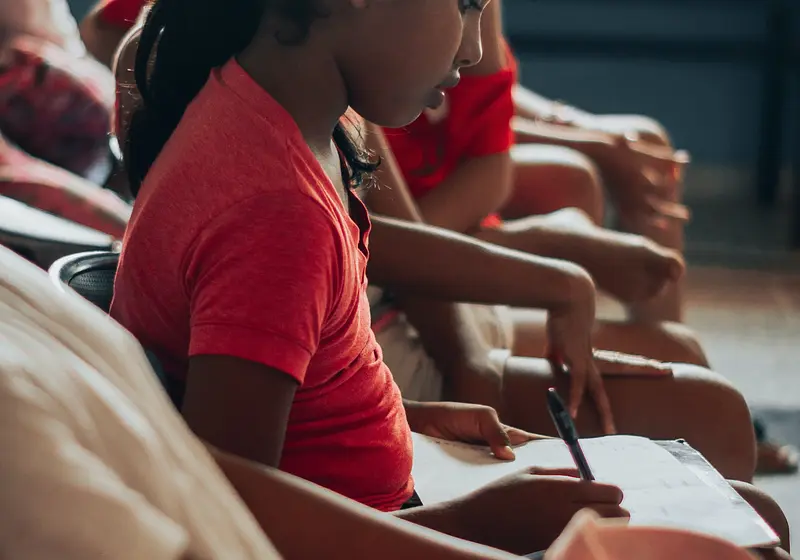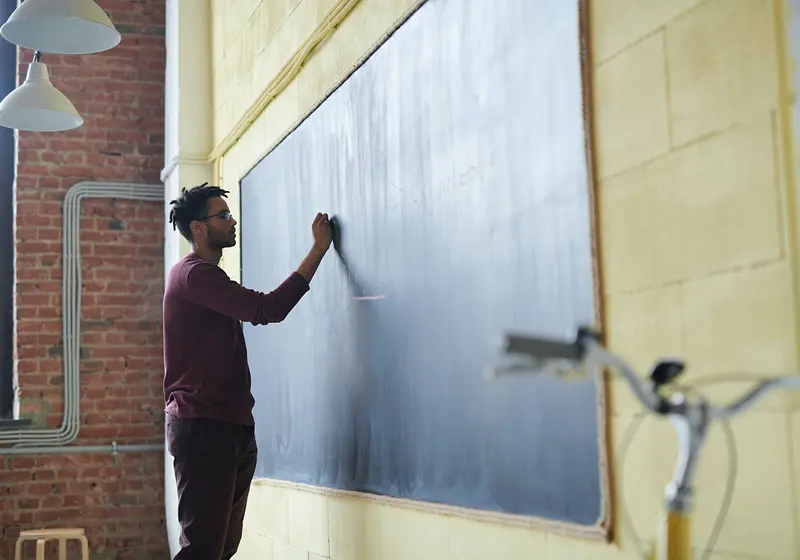In the UK, we are required to remain in education until the age of 18 years old. Most of us have spent all our formative years in the public school education system, and in such a crucial period of our lives, the system has failed us. There are too many talking points about this topic, and I could go on forever and ever, but I’ll keep it short and list six of my qualms with the public school education system.
Let us slide into your dms 🥰
Get notified of top trending articles like this one every week! (we won't spam you)1. Lack of support in decisions
If you have studied in the UK, then you know that we have big decisions to make in Year 9, Year 11, and Year 13. Choosing your GCSEs, your A-Levels, and your degree; these choices become the foundation of your future. Yes, the professional world is changing, but these three choices still play a part in adult life.
I personally feel like in these stages, I did not receive enough support and information to make informed decisions. Instead of attending to our needs, schools just seem to pedal visitors our way, each promoting their own website and company but not actually helping us. There is only so much research we can do by ourselves. Sure, we can ask for help, but sometimes you just don’t know what you don’t know.
I think we could see improvement if we spent Years 7 to 9 focusing on exploration and engagement in different industries. I remember sitting through PSHE lessons, presentations and a ‘learning skills’ class but never actually learning anything useful. If we’re going to force students to sit through algebra that they will never use, we can at least try and optimise classes such as PSHE to help with prospects and provide guidance. It’s better to give the information early rather than leave us to our own devices while we’re clueless.
Take the Quiz: Which Indian city is the perfect holiday spot for you!?
Let's match you with an Indian city that you would love!
2. The Almost obsessive focus on exams and grades
I think I speak for everyone when I say standardised testing absolutely sucks. I’m at university right now and I have to say that my favourite part of my marketing course is that most of my final assessments are coursework. I really get to demonstrate my individuality and competence, and apply my knowledge to real-life situations; plus, I get a portfolio out of it, which is great. It makes doing work a lot more fun than having to cram my mind with eight geography case studies and mathematic equations.
If the curriculum put more focus on the journey of learning and applying theory, I think students would enjoy school much more.
Imagine taking GCSE computer science and getting to code your own programme that teaches computer science theory to kids, or something along those lines. An assessment like this would give valuable skills to future programmers:
-
An example of their programming skills to show universities and future employers – especially for students that go straight into entry-level positions, e.g. an apprenticeship
-
A feel of a workplace environment where they can code, plan their time and meet deadlines
-
A fun way of remembering computer science theory combined with practical
These same benefits could be seen in other subjects, like creating a business proposal using business studies theory. Coursework as an alternative to exams provides valuable skills, and testing can be used for theories that can’t be demonstrated in coursework.
3. The effect of academic stress on mental health
Academic stress affects students’ mental health, which influences their academic performance, and causes academic stress. It’s a vicious cycle; one that is also subject to factors outside of school, because school is not the centre of our lives. You never know what a student is facing outside of school, academic stress on top of that is just a recipe for disaster.
In our formative years, academic stress is the last thing we need. It can lead to problems like anxiety and depression, which can affect students for life.
I understand that working hard is necessary, no doubt about that, but the public education system just doesn’t leave room for life outside of school. Maintaining grades, doing homework, revising, relaxing, resting, making time for hobbies, learning life skills, spending time with family and friends, 8 hours of sleep; so much to do in 24 hours. School seems to take up a large percentage of our lives, not leaving time for other activities essential to development as human beings and good mental health.
Starting university showed me how unnecessarily occupied my time was in secondary school and sixth form. Now I attend lectures and seminars three days a week (last semester it was only two!), with some sessions recorded so I can revisit topics and learn at a pace comfortable for me. I have coursework, as I mentioned before, and my exams are multiple-choice; I have a social life and still maintain good grades and engagement. My mental health isn’t optimal, but that’s more because university can be very lonely, but that’s a whole other topic.
Public education before 18 years old has the potential to be like a university (which has its issues too) and reduce academic stress. Instead, we’re stuck with an outdated system from the industrial revolution.
4. Need for control from authority
One of my biggest nightmares in school was the scary need for control that some staff displayed. I had teachers that demanded respect despite being unnecessarily strict, rude to students and showing signs of favourites while singling people out with no just cause.
Respecting people is a necessity in life, but any more respect after that basic level should be earned, not demanded. I’ve noticed that as students, we tend to show more respect and are more comfortable with teachers who relate with us and treat us with respect. I personally learned from those teachers the most.
They were fun, engaging, respectful and strict only when they needed to be. They were the type of teachers that ended up being your favourites; you felt upset when they were angry or disappointed because it was so out of character for them. I stand by the statement that respect is earned, and teachers should try and keep that in mind.
Disclaimer: I understand this does not apply to every situation, it’s important that you recognise the context of my statements and don’t apply it to situations where it doesn’t work. This is not an excuse for being disrespectful to teachers.
5. Lack of active listening
Another frustration of the public school system is the tendency for kids to go unheard. We could shout our needs and thoughts to the world and still be overlooked. We could say ‘it’s too much homework' and all people hear is ‘I’m too lazy to do the work’.
Yes, this may be the case sometimes, but other times it’s a genuine cry for help. This is just a common example, but there are many cases where complaints are brushed off as a sign of laziness or something related to that. If a teacher took a complaint about too much homework seriously, they could try giving students less homework for two weeks and then give them an in-class test to see if there’s a change in performance.
It's a simple and effective way of listening to students and adapting to their needs. It’s important to demonstrate that we can come to those with authority and have our needs heard. It encourages kids and teens to speak up and ask for what they need.
It tells us that we’re being heard. Of course, this level of adaptability isn’t always possible, since teachers also answer to people above them. This is where questioning the whole system comes into play.
6. Racism
As a black woman, I cannot talk about the public school system without talking about the subtle, and sometimes blatant, racism entwined with it. When we speak about racism, people’s minds often go straight to hate crimes, police brutality and other types of overt racism. But we must acknowledge the subtle micro-aggressions that slip past unnoticed, sometimes by the victim too.
It can be small comments on hair or receiving sanctions for basic cultural differences. We may be teens, but we’re not oblivious to it. Seeing white girls walking around with red or green-dyed ends but telling black girls that they can’t come to school with blonde braids, a natural hair colour.
Hair was a topic where all of us black girls recognised the treatment we received in comparison to our white peers. We were called intimidated or accused of behaving like a gang, simply because we’re a friendship group of predominantly black girls.
I once had my form tutor say that women’s suffrage was worse than slavery, which is objectively incorrect when you consider all the atrocities that occurred during slavery. It was even worse because she was speaking to a group of young black girls who were both black and identified as women. It became an issue that resulted in tears from us and her being more upset at the implication that she was racist, rather than listening to the impact of what she said and learning from it.
We were the ‘loud black girls’, but others were just chatty teenagers; there were times when others would talk just as loud and as much, but we were the ONLY ones to get in trouble. It may not seem like much, but when you experience it often and you notice a pattern, it becomes an issue that weighs on your mind.
Racism can be both overt and subtle and it often isn’t dealt with fairly because there are barely any people in positions of power who look like us and can empathise with us. These people could be cultural translators if given the chance. You don’t need to be a person of colour to deal with these situations, but it is important to recognise the nuance that comes with experiencing it.
With the knowledge I have now, I look back on situations like this and realise that I wasn’t really ‘allowed’ to just be a teenager, I had to be conscious of how my race and cultural differences affect how I’m perceived by others. That’s the harsh reality for a lot of kids of colour. Experiencing it is bad enough, but having it go unrecognised and dismissed is painful.
Key takeaways
I think an important takeaway from this is that the system is outdated, it doesn’t accommodate all the changes we’re seeing in the world today. Society is constantly evolving and we’re always receiving new information, yet the public school education system has stayed relatively the same. We need to prepare kids and teens for employment AND life.
We also need to teach students and teachers how to be tolerant and conscious of people’s identities. We can’t stick our heads in the sand and ignore differences in race, culture, sexuality, ability, etc. We need to acknowledge it and behave accordingly, teach about racism, LGBTQ+, disabilities, mental health, and more.











.jpg)





